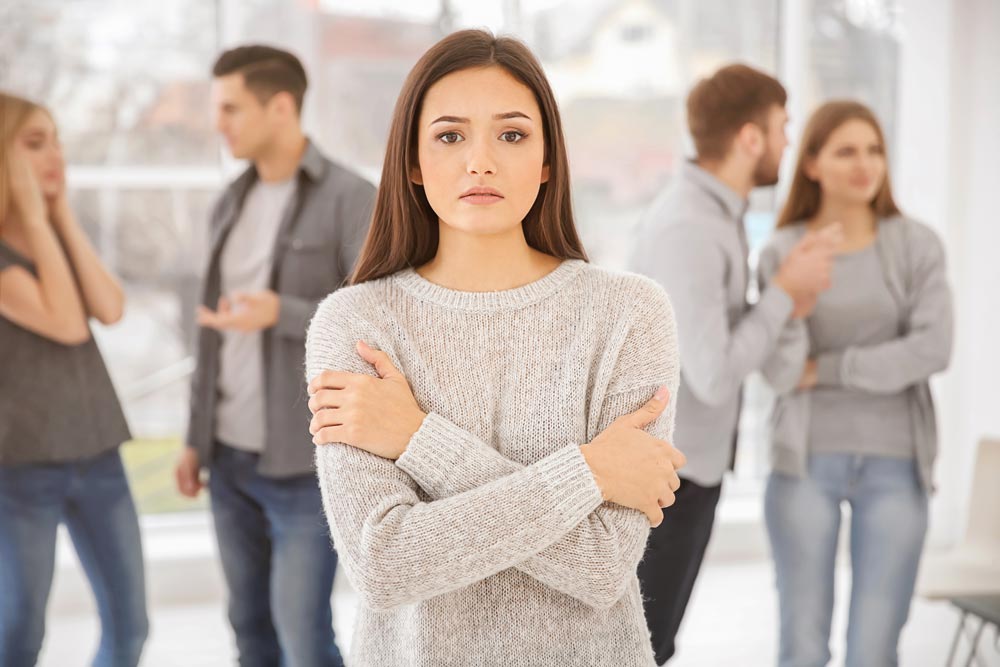Many people experience some shyness and discomfort, especially in new situations or with unfamiliar people. However, it is generally tolerable once you warm up and relax after a while. Unlike shyness, such conditions are intolerable for people with social phobia. They find it nearly impossible to relax in social or performance settings, and feel as if everyone is watching and judging. They are extremely afraid of making mistakes, appearing foolish, feeling embarrassed, and being criticized or rejected. The lack of self-confidence of social anxiety sufferers also tend to result in poor assertiveness skills. As a result, people with social anxiety avoid certain people, places, or social events that feel unsafe. At the extreme, sufferers can be completely housebound. Social anxiety in children often interferes with academic achievement, school attendance, social hobbies, and making friends. Social anxiety disorder affects over 16 million Americans, can happen to anyone, and often starts in mid-adolescence.
Associated Features
- Can occur in celebrities, athletes, public figures, stage performers
- Feared situations include public speaking, demonstrating a skill, stage/athletic performances, asking questions, social gatherings
- Unreasonable fears of possible scrutiny by others or being perceived unfavorably
- Fear of acting in ways that will be humiliating or embarrassing
- Anxiety in children may be expressed as crying, tantrums, freezing, or shrinking from social situations
- Feared social or performance situations are avoided or endured with intense distress
